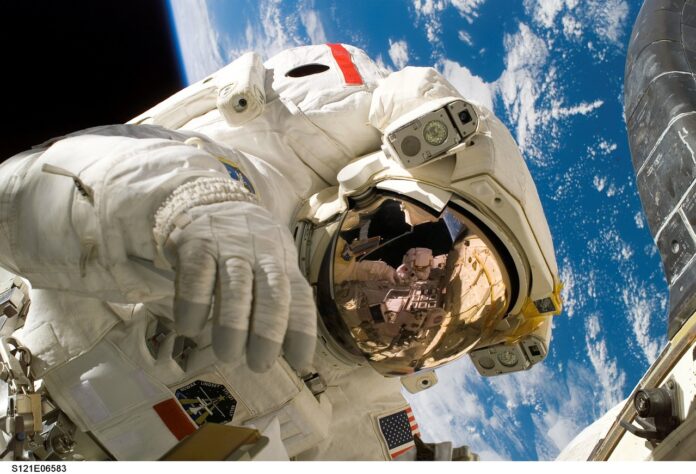Astronauts are among the most courageous and determined people in the world. They face the unknown every day, risk their lives, and endure health challenges in zero gravity, all in the name of advancing science. The dream of space travel becomes the ultimate goal of their lives, and the most persistent and brave among them etch their names into history.
Facts About Astronauts:
- Space Food: While in space, astronauts consume most of their food in liquid or gel form, often from tubes.
- Exercise Routine: On the ISS, astronauts engage in rigorous physical exercises using special equipment to maintain their fitness in zero gravity.
- First American in Space: Alan Shepard became the first American in space on May 5, 1961, aboard the Mercury-Redstone 3, also known as Freedom 7. He later walked on the Moon during the Apollo 14 mission.
- First American to Orbit Earth: John Glenn was the first American to orbit Earth on February 20, 1962, during the Mercury-Atlas 6 mission. He later became the oldest person to fly in space at age 77 aboard the Space Shuttle Discovery in 1998.
- Apollo 11 Mission: Neil Armstrong became the first human to set foot on the Moon on July 20, 1969, during the Apollo 11 mission. His famous words, “That’s one small step for man, one giant leap for mankind,” are etched in history.
- Sally Ride: On June 18, 1983, Sally Ride became the first American woman to travel to space aboard the Space Shuttle Challenger during the STS-7 mission. She was also the youngest American astronaut to travel to space at the age of 32.
- Space Shuttle Program: The Space Shuttle program, launched in 1981, was a significant achievement for NASA, allowing reusable spacecraft to travel to space. Notable missions include STS-1 (Columbia), which was the first orbital flight of the Space Shuttle, and STS-135 (Atlantis), the program’s final mission in 2011.
- Longest Spaceflight by an American: Christina Koch holds the record for the longest single spaceflight by a woman, spending 328 days aboard the International Space Station (ISS) from 2019 to 2020. This mission provided valuable data on the effects of long-duration spaceflight on the human body.
- The Hubble Space Telescope: The deployment of the Hubble Space Telescope in 1990 was a monumental achievement for NASA astronauts. Hubble has provided some of the most detailed images of distant galaxies, stars, and other celestial objects, revolutionizing our understanding of the universe.
- Apollo 13 Mission: The Apollo 13 mission, launched on April 11, 1970, was famously referred to as a “successful failure.” Despite an onboard explosion that forced the mission to abort its lunar landing, the crew successfully returned to Earth, thanks to the heroic efforts of the astronauts and NASA ground control.
- Height Increase: Due to the absence of gravity in space, the human spine elongates, and astronauts grow a few centimeters taller while in orbit.
- Relearning to Walk: Many astronauts need to relearn how to walk upon returning to Earth.
- Different Terms: In the U.S., astronauts are called “astronauts,” while in China, they are known as “taikonauts.”
- Adjusting to Gravity: After spending extended time in zero gravity, astronauts often find it challenging to readjust to the fact that objects have weight and will fall if released.
- First Moonwalker: Neil Armstrong was the first astronaut to step onto the Moon, a goal he trained for over a decade.
- No Deaths in Space: Throughout the history of space exploration, no astronaut has died in space itself. Although there have been fatal accidents, they occurred during launches, landings, or testing.
- Buzz Aldrin’s Story: Buzz Aldrin, the second person to walk on the Moon, once claimed that astronaut Alan Shepard became the first American in space because NASA initially planned to send a monkey. However, after receiving a flood of letters protesting animal rights, they sent Shepard instead, as no letters were sent in his defense. At age 72, Buzz Aldrin famously punched a disrespectful man who demanded he confess that he never walked on the Moon or swear on the Bible that he had.
- Customs Declaration: Astronauts returning from the Moon on the Apollo 11 mission went through customs, declaring their cargo as “moon dust and rocks.”
- Space Sickness: Many astronauts experience “space sickness” upon entering zero gravity, with symptoms similar to seasickness, such as dizziness and nausea.
- Longest Time in Space: The world record for the most time spent in space is held by Russian cosmonaut Gennady Padalka, who spent a total of 878 days in orbit. The previous record was 438 days, held by Valery Polyakov.
- Bone Density Loss: Extended time in zero gravity causes astronauts’ bones to lose calcium and become brittle.
- No Snoring: Astronauts who snore on Earth stop snoring in zero gravity.
- Sunsets and Sunrises: Astronauts on the ISS see 16 sunrises and sunsets each day, so they follow a standardized time for convenience.
- Brushing Teeth in Space: Astronauts have to swallow the toothpaste foam after brushing because they cannot spit it out in zero gravity. They use a special toothpaste that is safe to ingest, though not particularly pleasant.
